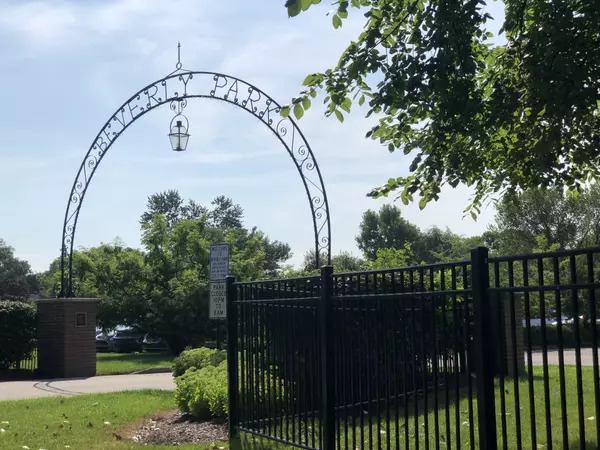Michigan Probate Real Estate: What Are Letters of Authority?

When you lose a loved one, you are grieving, and this can be a very stressful time. Unfortunately, you may have to navigate the probate process during this difficult time, which can be stressful, time-consuming, and emotionally draining.
I frequently work with families who find themselves in the difficult situation of having to sell their loved one’s home or transfer the property to the beneficiary or beneficiaries listed in the will. However, the family, executor, or personal representative cannot list the house for sale or transfer the property to the beneficiary without a Letter of Authority. (Note: for the purposes of this blog, we will use executor and personal representative interchangeably.)
While you could list the property for sale with a real estate agent, a title company will not let you transfer or sell the house without a Letter of Authority giving you the right to do so. A title company will want to ensure that they’re working with the person who is legally allowed to represent the estate and not someone who only claims that they’re allowed to represent the estate.
What is a Letter of Authority?
A Letter of Authority is a crucial document in the Michigan probate process. Here’s a closer look at what it entails and how it functions:
1. A Letter Of Authority Makes You The Legal Representative Of An Estate: A Letter of Authority is a legal document that is signed by the probate court where your loved one was living at the time of their death. It designates the person who will be the personal representative of your loved one’s estate. The personal representative is able to control and manage the money, property, and assets that were owned by the person who passed away. The personal representative must follow the instructions in the will (or the instructions as outlined by Michigan probate law if there was no will). As the personal representative, you are able to sign for and manage assets on behalf of the estate, including selling the house or property of your deceased loved one.
2. It's A Standard Part of The Probate Process: The Michigan probate process is the legal process that takes place after a person has passed away. It’s used to properly distribute their money, property, real estate, and other assets to the heirs, beneficiaries, and/or creditors. The Letter of Authority is a standard part of this process and ensures that the person managing the estate has the legal right to do so.
3. How To Get Your Letter of Authority: To obtain a Letter of Authority, you must open a probate estate and petition the probate court to become the estate’s personal representative. This process involves several steps:
- Filing a Petition: You must file a petition with the probate court in the county where the deceased lived. This petition formally requests the court to appoint you as the personal representative.
- Notifying Heirs and Beneficiaries: Once the petition is filed, you must notify all heirs and beneficiaries that a probate estate has been opened. This notification ensures transparency and allows anyone with objections to come forward.
- Court Hearing: In some cases, the court may hold a hearing to determine if you are suitable to act as the personal representative. If there are no objections and the court finds you suitable, you will be appointed as the personal representative.
- Issuance of Letter of Authority: After the court appoints you, you will be issued your Letter of Authority. This document identifies you to third parties as the legal representative authorized to manage the estate.
Why is the Letter of Authority Important?
The Letter of Authority serves several critical functions in the probate process:
- Legal Validation: It provides legal validation that you are the authorized person to handle the deceased's affairs, ensuring that all actions you take on behalf of the estate are legitimate.
- Protection Against Fraud: It protects against fraud by ensuring that only a court-appointed individual can manage and distribute the estate's assets.
- Facilitates Transactions: It facilitates transactions such as selling real estate, accessing bank accounts, and paying off debts by providing proof of your authority to financial institutions and other entities.
A Probate Lawyer Can Speed Up The Process
While it is not legally required, we highly recommend that you seek the services of an attorney who specializes in probate to help you navigate the probate process. A well-qualified attorney can help expedite the process and ensure that everything is handled correctly. Here’s how a probate lawyer can assist:
- Expert Guidance: An experienced probate attorney can provide expert guidance on the complex legal procedures involved in probate, helping you avoid common pitfalls and delays.
- Document Preparation: A probate attorney can assist in preparing and filing all necessary documents, ensuring that everything is in order and submitted on time.
- Court Representation: If there are any disputes or complications, a probate attorney can represent you in court, advocating on your behalf and protecting your interests.
- Asset Management: A probate attorney can help manage and protect the estate's assets, ensuring that everything is accounted for and distributed according to the will or Michigan law.
Why Choose Higgins Partners for Probate Real Estate? At Higgins Partners, we specialize in helping families navigate the probate process and sell their loved one’s properties. Our compassionate perspective, combined with our years of experience, helps make this very difficult time less stressful. Here’s what sets us apart:
- Compassionate Support: We understand that dealing with the loss of a loved one is challenging. Our team provides compassionate support to help you through this difficult time.
- Expertise in Probate Real Estate: With our extensive experience in probate real estate, we know the ins and outs of the process and can handle all aspects of selling the property, from listing to closing.
- Network of Professionals: We have a network of trusted probate attorneys, title companies, contractors, appraisers, staging companies, cleansing companies estate sale firms, and other professionals who can assist with various aspects of the probate process, ensuring a smooth and efficient experience.
Final Thoughts. Navigating the probate process can be overwhelming, but understanding key documents like the Letter of Authority can help make the process more manageable. At Higgins Partners, we are here to provide the support and expertise you need to navigate this challenging time and ensure that your loved one’s estate is handled with care and professionalism.
If you have a question about the probate process or would like us to put you in touch with one of our preferred probate attorneys, please call Jeff Higgins at (248) 233-6165 or send an email to jeff@higginspartners.com.
For more information on probate, visit https://higginspartners.com/probate, a great resource that we update regularly.
Jeff Higgins of Higgins Partners currently serves the Metro Detroit and Ann Arbor area, including the five-county area of Oakland, Macomb, Wayne, Livingston, and Washtenaw. If your house, condo or property is outside of Metro Detroit and you need a listing agent, please let us know. We can put you in touch with one of our network partners who understands the probate real estate process.
*Note: Nothing in this blog shall be construed as legal advice. We recommend consulting a probate attorney for all legal matters. The point of this blog is to share some information from our perspective as a professional licensed real estate agent in the state of Michigan.
Categories
Recent Posts










GET MORE INFORMATION
Managing Partner | License ID: 6506046014
280 North Old Woodward Avenue, Suite 100, Birmingham, MI, 48009, United States
